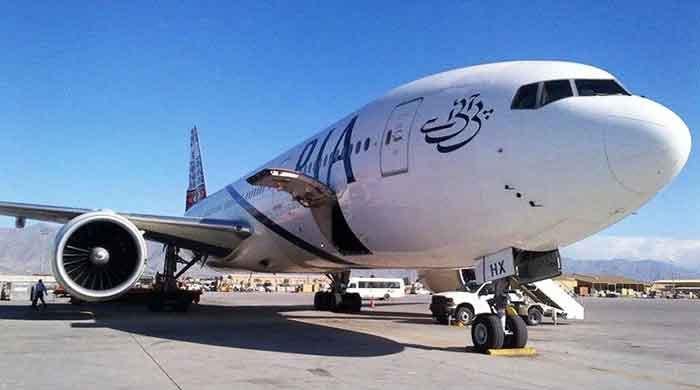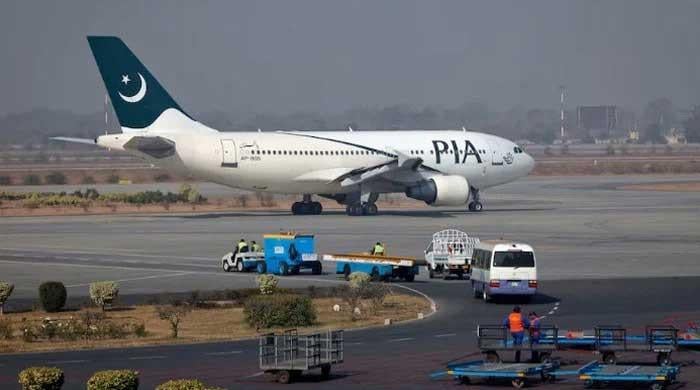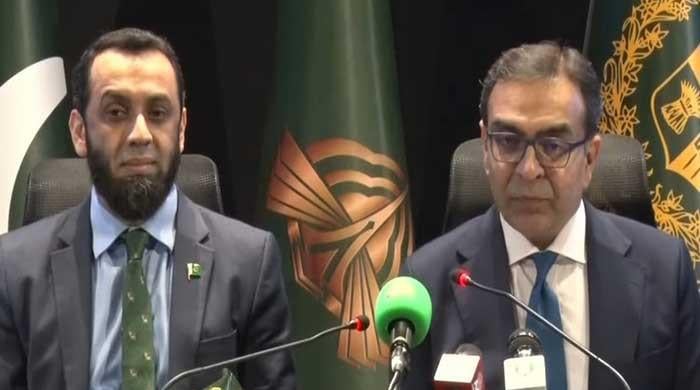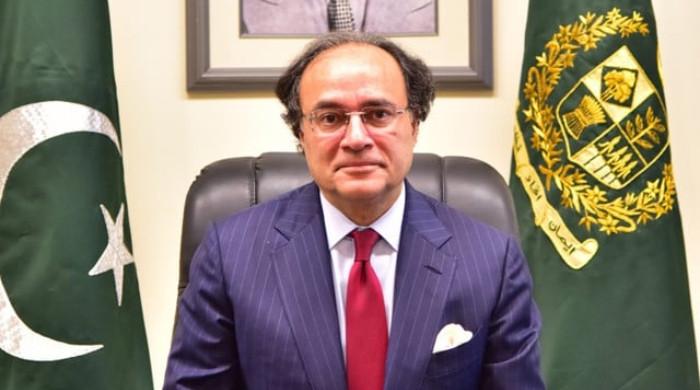Govt considering signing LNG pipeline deal with Russia
Musadik Malik assigned to come up with viable options in light of US sanctions against Russia, Iran: sources
July 11, 2024
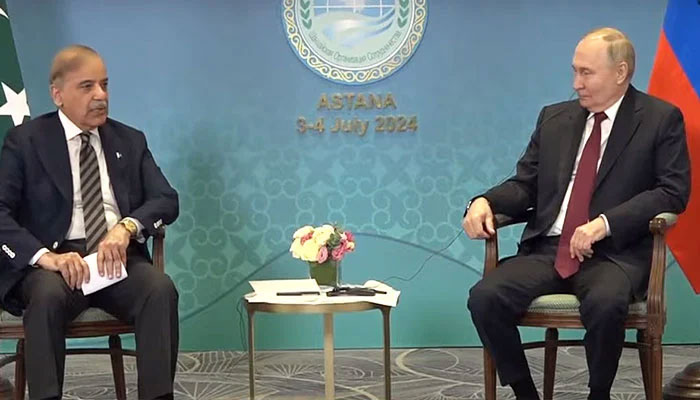
- Ministries told to come up with solutions to boost bilateral trade.
- Musadik Malik assigned to look into options in light of US sanctions.
- Authorities mulling different routes to materialise this project.
ISLAMABAD: The Prime Minister Shehbaz Sharif-led coalition government is considering signing a multi-billion liquefied natural gas (LNG) pipeline agreement with Russia to address its increasing energy needs, The News reported on Thursday.
Islamabad's move comes after Russian President Vladimir, during his meeting with PM Shehbaz on the sidelines of the Shanghai Cooperation Organisation (SCO) summit earlier this month, offered the construction of an LNG pipeline via Iran to Pakistan and then connecting it to India.
During the meeting, the prime minister underscored the potential to increase and enhance existing bilateral trade between the two countries and expressed the desire to work closely with President Putin to further cement bilateral relations.
The two countries share a bilateral trade worth between $800 to $900 million per annum and there is an ambitious plan to increase it to its real potential in the coming years.
Senior official sources have revealed to the publication that different ministries are doing internal spadework and Minister for Petroleum Musadik Malik has been assigned to conduct a study and come up with viable options, keeping in view the sanctions imposed by the United States on Russia and Iran.
The relevant ministries have been assigned to assess this potential, considering regional and global realities, and come up with viable solutions to promote trade up to $20-$25 billion per year.
Furthermore, different routes are being studied to materialise this project, as previous efforts for regional energy connectivity in the form of both power and gas have not materialised despite considerable promotion over the last few decades.
The LNG pipeline development comes as Russia’s trade with European countries was reduced by 70%, leading them to seek new markets, including South Asia.
The two countries also share a history of cooperation in the LNG sector wherein Islamabad and Moscow, back in 2015, had agreed to build a 1,100-kilometre (683-mile) pipeline to deliver imported LNG from Karachi on the Arabian Sea coast to power plants in the northeastern province of Punjab.
Sources said that Islamabad wants to materialise the Russian LNG project without antagonising the US, so different options are being explored to achieve a win-win situation for all parties concerned.
However, one key hurdle in the materialisation of this project might be none other than the US sanctions — Washington's key choice of weapon against Russia and anyone who engages in business with Moscow.
The sanctions also threaten another key project i.e., the 1-900 kilometres-long Pak-Iran gas pipeline. The agreement on the said project was signed back in 2010 but the work on it within Pakistan's territory has been held up due to fears of US sanctions.
The pipeline was meant to supply 750 million to one billion cubic feet per day of natural gas for 25 years to meet Pakistan’s rising energy needs.
Therefore, for its LNG project with Russia it seems Islamabad may have to replicate Turkey’s experience, whereby it had struck such a commercial agreement without facing the negative impacts of US sanctions.





